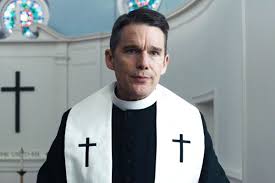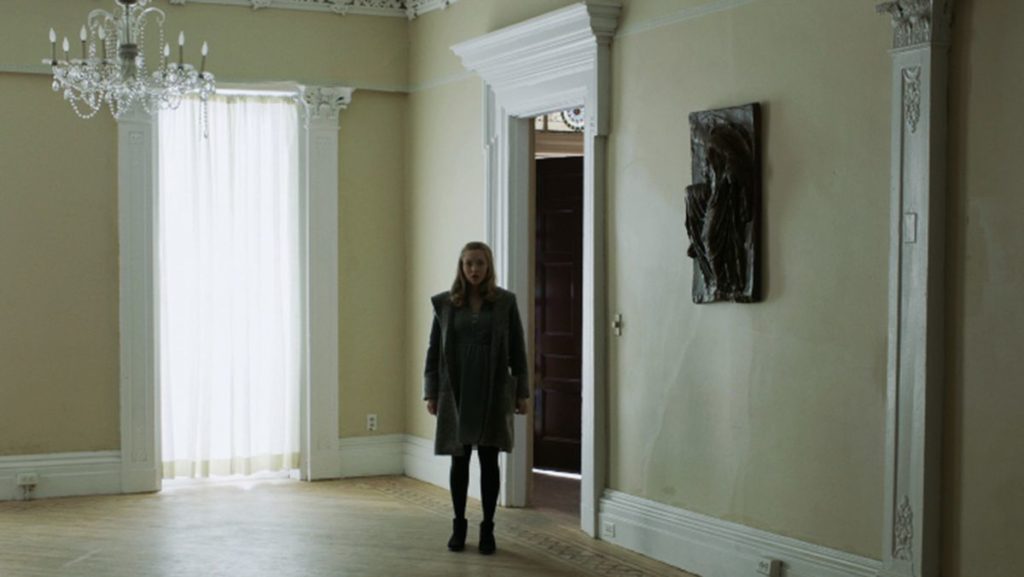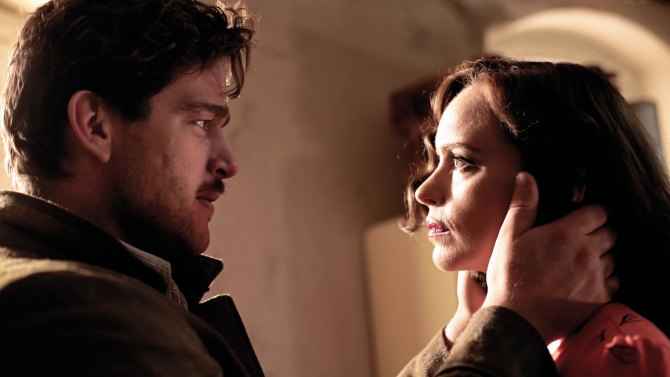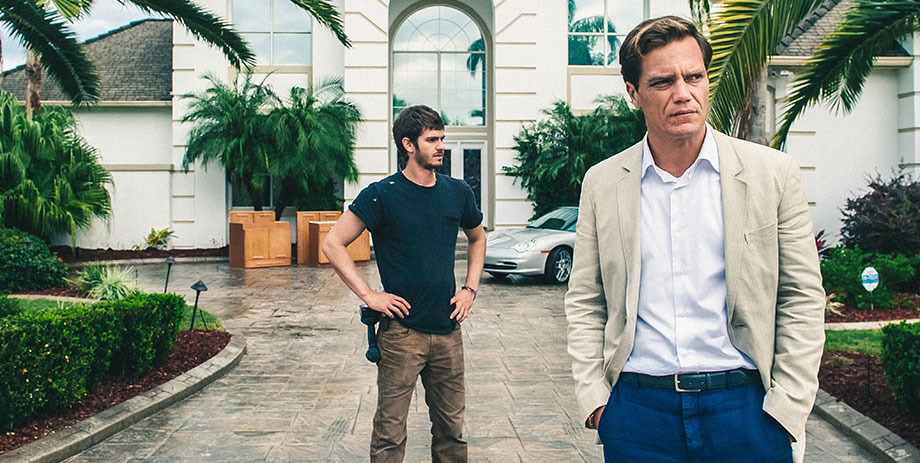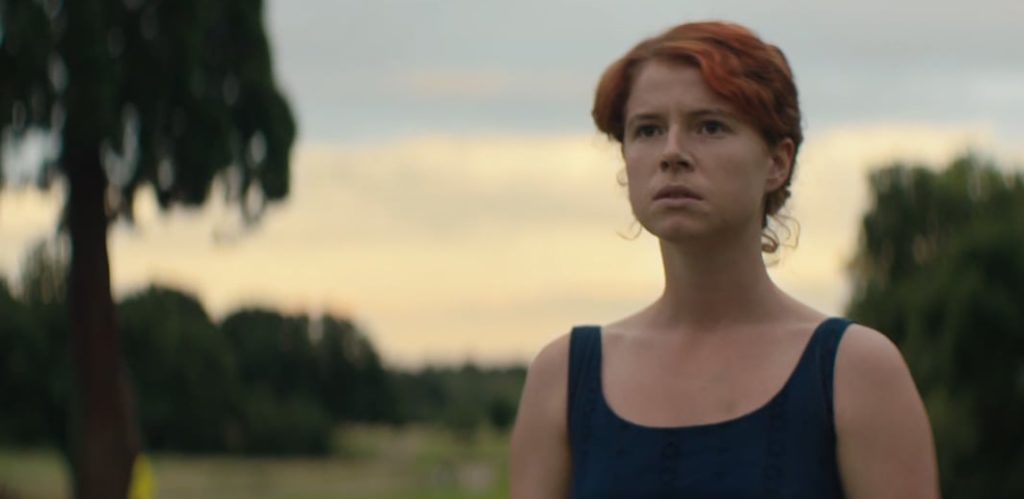
The psychological thriller Beast is set on the British Channel Island of Jersey, where the young woman Moll lives with her affluent family. Moll (Jessie Buckley) is the disregarded and put-upon step-sister in her own family – ignored except when being assigned the task de jour. Only the local cop is sweet on Moll, which brings her revulsion. Moll is dramatically rescued from a bad situation by the scruffy, somewhat feral, dreamy-eyed Pascal (Johnny Flynn). Moll and Pascal fall in love.
It turns out that Moll has within herself confidence, strength and passion – all long and cruelly suppressed by her mother. Pascal pulls Moll from her horrid family and unleashes, for better and for worse, Moll’s true persona. So this is a pretty fair romance to this point, but I did mention that Beast is psychological thriller. A serial killer has been prowling Jersey, raping and murdering young women and girls. The police suspect…Pascal.
Now we experience some unsettling ambiguity. Does Moll protect Pascal because she thinks him innocent? Or because she thinks that he’s the murderer? In his impressive first feature, writer-director Michael Pearce finally reveals something in Pascal’s past that gives us pause. And, even later, we learn something about Moll’s past, too. Holy shit. And we’re off on a roller coaster, wondering what Moll is going to do next and why, all the way to the shocking ending.
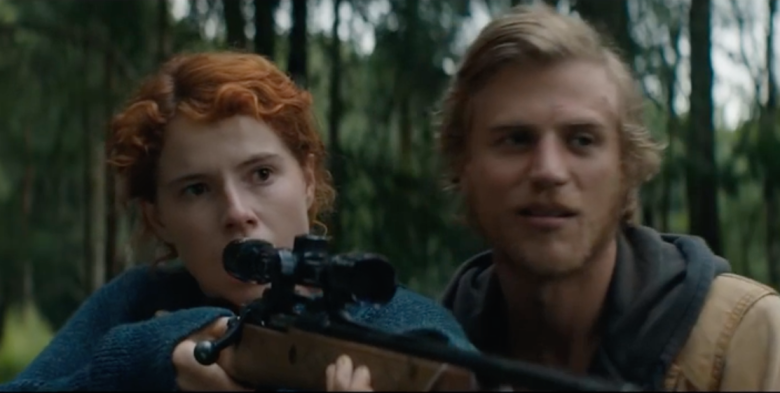
The reason that Beast works so well is the stunning performance of Jessie Buckley. As an audience, we’re always drawn to Buckley’s Moll, at first understanding and relating to her defeatedness, inner rage and lust. But then Buckley keeps us from knowing exactly what’s going on inside, although we learn to accept that it sure is unpredictable. Buckley is Irish, and her singing career was launched on an American Idol-type show in Britain. She’s since acted in some British Isles television series. She is an incredible force of nature in this role.
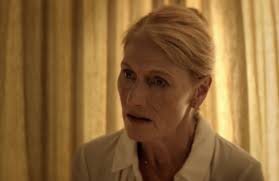
Veteran actress Geraldine James gets the juicy role of the controlling and oppressive mother, her every remark filled with manipulation, shaming and the inducement of guilt. The mom is by FAR the least sympathetic character – and this story also has a serial killer in it. Johnny Flynn is very good as Pascal.
But it’s Jessie Buckley’s performance and Michael Pearce’s story that should bring you to see Beast. It’s a heckuva ride. You can stream Beast on Amazon, iTunes, Vudu, YouTube and Google Play.

